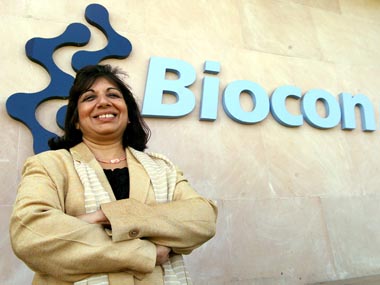Dr. Marty Guinn
Director of Chemical Development
Chemical Development, Pfizer
Pharma Therapeutics, USA
https://www.linkedin.com/in/martin-guinn-129b286
Summary
Director of pharmaceutical API process development with experience leading process development engineering, process safety, crystallization engineering, and chemical reaction, salt, and polymorph screening groups. Over 25 years of total experience in pharmaceutical process engineering, project management, process research and development, team leader, technology transfer, early development to late-stage registration and validation for projects ranging from small molecules, peptides, natural products, and fermentation products.
Specialties: Process research and development, technology development, team and project leadership, coaching/mentoring, performance management, strategic planning.
Specialties: Process research and development, technology development, team and project leadership, coaching/mentoring, performance management, strategic planning.
Experience
Director, Engineering Technologies and Process Safety
Pfizer
Manage the process development engineering and process safety groups responsible for development and scale-up of safe, robust, and efficient batch and continuous chemical processes to produce API for clinical supply and commercial launch of Pfizer NCEs.
Director, Chemical Technologies and Crystallization Engineering
Wyeth
Manage the Process Chemistry Technologies Group (7 chemists) and the Crystallization Technologies Group (1 chemist/4 engineers) in Chemical Development at Pfizer PharmaTherapeutics. Groups are located in Pearl River NY and Montreal. The PCT group conducts high throughput parallel experimentation, DoE experiments, and applies advanced process research technology (FTIR, continuous flow, SMB, etc) to support early stage API process development and clinical supply. The CET group conducts salt and polymorph screening to select a suitable form for development and develops robust crystallization processes to support API delivery.
Principal Development Engineer
Roche Pharmaceuticals
Process development engineer and API project leader responsible for development of robust and efficient chemical processes for Roche NCEs and commercial products. Created and managed the automation lab supporting small molecule and peptide process development.
Process Development Engineer
Array BioPharma
Process Development Engineer
Molson Coors
Process development engineer responsible for downstream process design for micro algal fermentation process. CoorsBiotech was sold and stopped operation.
Process Development Engineer
Abbott Laboratories
Plant process engineer responsible for capital project design and execution for API batch multipurpose plant. Process development engineer responsible for development of robust and efficient batch processes for small molecule APIs.
Education
How Pfizer Is Improving Process Development For Bench Scientists
Recently, Dr. Marty Guinn, Director of Chemical Development for Pharma Therapeutics at Pfizer, wrote:
“Productivity, reproducibility and confidence are important to us. In our experience, the EasyMax meets all the requirements and has opened the door to the potential of automation to improve the efficiency of process development for our bench scientists. Currently, our chemists and engineers are utilizing the EasyMax on a daily basis for both early and late-stage process development in a variety of applications and venues. We are actively distributing basic EasyMax units to individual users and allowing them to individually up-grade to more advanced systems and their confidence and creativity develops. We have established walk-up EasyMax work stations consisting of several units linked together through iControl for Design of Experiment (DoE) experimentation for process chemists.”
In his role as Director of Chemical Development at Pfizer Pharma Therapeutics, Marty manages the Process Chemistry Technologies Group and the Crystallization Technologies Group. The Process Chemistry Technologies Group conducts high throughput parallel experimentation, DoE experiments, and applies advanced process research technology (FTIR, continuous flow chemistry, etc.) to support early stage Active Pharmaceutical Ingredient (API) process development and clinical supply. The Crystallization Technologies Group performs salt and polymorph screening to select a suitable form for development and develops robust crystallization processes to support Active Pharmaceutical Ingredient (API) delivery.

At DynoChem 2011 in Rosemont, Illinois, Martin Guinn, PhD, Director of Engineering and Process Safety for Pfizer (Groton), presented on his team’s work in “Enabling Continuous Chemistry in Early Development.”
Guinn noted that Pfizer started a “serious effort” about a year ago to enable flow chemistry to assist in developing its early-phase portfolio. “The driver for doing this is speed to API,” he said.
Of late, there’s been much more interest in flow chemistry, Guinn acknowledged, but “we also know there aren’t many examples of continuous processes going into manufacturing.” One of the keys to changing this is doing more pre-Proof of Concept (i.e., pre-Phase II) flow chemistry work, he said.
One of the traditional bottlenecks in early-phase manufacturing has been the ability to make substantial amounts of API within the time constraints of early clinical work. “We need to make a lot of API, and quickly,” he said. “That’s where the value proposition for flow is.”
Flow chemistry, Guinn said, enables:
Of late, there’s been much more interest in flow chemistry, Guinn acknowledged, but “we also know there aren’t many examples of continuous processes going into manufacturing.” One of the keys to changing this is doing more pre-Proof of Concept (i.e., pre-Phase II) flow chemistry work, he said.
One of the traditional bottlenecks in early-phase manufacturing has been the ability to make substantial amounts of API within the time constraints of early clinical work. “We need to make a lot of API, and quickly,” he said. “That’s where the value proposition for flow is.”
Flow chemistry, Guinn said, enables:
- a broader chemical space
- the ability to directly scale medicinal chemistry routes
- improved selectivity and reactivity
- the ability to prepare larger quantities of material with the same hardware (that is, to just run equipment longer).
All of these elements relate to speed to delivery and speak to a clear value proposition, Guinn noted.
He next presented examples of work done, and equipment used, in one of Pfizer’s kilo labs. In one standard reaction, 1-2 kg of product was produced in a day via flow operations, whereas it typically required one week to produce the same amount through batch processes. Guinn also presented examples of some of the modeling being done to support these efforts.
Some of the keys to success of pre-POC flow work, according to Guinn:
He next presented examples of work done, and equipment used, in one of Pfizer’s kilo labs. In one standard reaction, 1-2 kg of product was produced in a day via flow operations, whereas it typically required one week to produce the same amount through batch processes. Guinn also presented examples of some of the modeling being done to support these efforts.
Some of the keys to success of pre-POC flow work, according to Guinn:
- the creation of a dedicated pre-POC flow team (chemistry, engineering, process safety, analytical)
- integration of key skill sets and capabilities
- creation of a Flow Lab for small-scale prep and technology development and assessment
- improving workflows for indentifying “flowable” substrate and for making a rapid flow assessment.
Of course, there are also many opportunities for using flow chemistry post-POC—for example, in isolation and drying—and this work will complement early-phase flow chemistry. Pfizer already has several products (Celebrex and Lyrica are two) that have made use of some flow elements in second-generation manufacturing efforts.
Guinn expects to see more flow chemistry in first-generation product development efforts as well. In order for this to happen, manufacturing teams must overcome many traditional challenges:
Guinn expects to see more flow chemistry in first-generation product development efforts as well. In order for this to happen, manufacturing teams must overcome many traditional challenges:
- existing batch manufacturing capacity means that there is “not as much pull from manufacturing colleagues for flow processes”
- there is lower API demand for new products, and thus materials cost is not as much of a driver as it has been in the past
- regulatory and operational challenges
- suitable batch synthetic strategies
“Work doing in pre-POC will ultimately have some influence in post-POC,” he said. Regardless, “if we can expand process chemistry [using flow] in the pre-POC space, we will have been successful.”





































